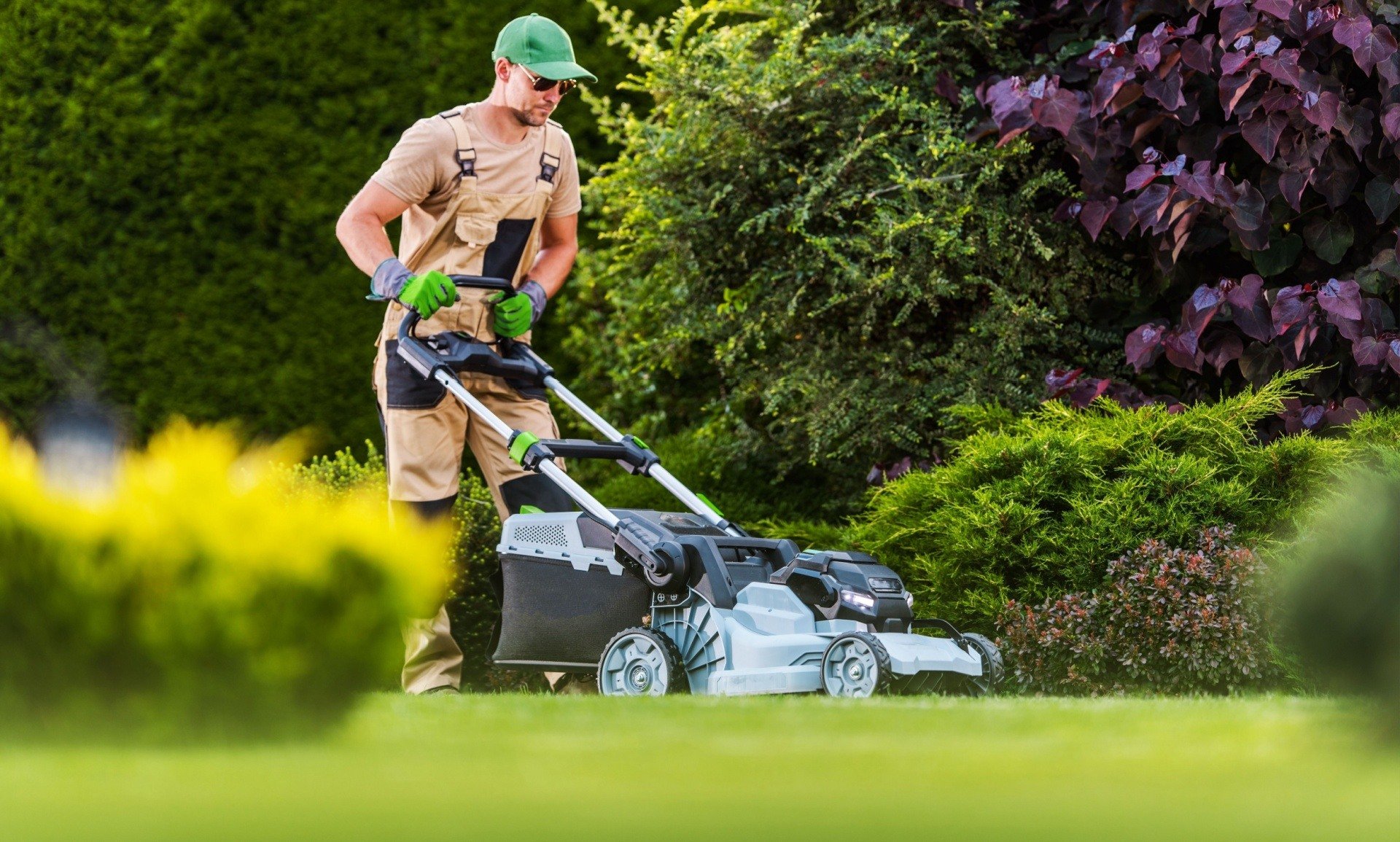
Challenges Seniors May Face in Lawn Care
Aging brings unique hurdles to lawn maintenance:
- Physical strain: Bending to pull weeds, pushing heavy mowers, or kneeling for extended periods can strain joints and muscles, increasing fall risks.
- Heat sensitivity: Working in direct sunlight raises chances of dehydration or overheating, especially during peak hours.
- Tool handling: Heavy equipment like gas-powered mowers or edgers may be difficult to maneuver, leading to fatigue or accidents.
- Consistency: Keeping up with regular tasks—watering, trimming, fertilizing—can become overwhelming with changing energy levels.
Smart Approaches to Lawn Care for Seniors
Adapting routines makes lawn care manageable:
- Low-maintenance landscaping: Opt for drought-resistant grass species or ground covers that require less mowing and watering. Replace high-effort areas with mulched beds or native plants to reduce upkeep.
- Lightweight tools: Choose electric or battery-powered equipment (e.g., lightweight mowers, handheld trimmers) that are easier to lift and operate. Look for models with ergonomic handles to minimize wrist strain.
- Timing matters: Schedule outdoor work during cooler parts of the day—early morning or late afternoon—to avoid heat stress. Break tasks into short 15–20 minute sessions with rest breaks.
- Simplify tasks: Use raised garden beds to reduce bending, or install automatic sprinklers to eliminate daily watering chores.
Exploring Local Lawn Care Services
For those needing extra help, local services offer tailored support:
- What to look for: Seek providers familiar with senior needs, such as flexible scheduling or assistance with specific tasks (mowing, pruning, leaf removal).
- How to connect: Ask neighbors, community centers, or senior groups for referrals to Local Lawn Care Services for Seniors. Many areas list Lawn Care and Maintenance Services Near Methrough community boards or online directories.
- Service alignment: Ensure the team understands your priorities, whether it’s preserving a favorite flower bed or maintaining a neat, safe lawn edge to prevent trips.
Questions to Ask Potential Services
When evaluating options, focus on practicality:
- What specific tasks are included in regular maintenance?
- Do you offer flexible scheduling to accommodate energy levels?
- Are your team members trained in safe lawn care practices around homes with seniors?
- Can you adjust services seasonally (e.g., snow removal in winter, leaf cleanup in fall)?
Tips for Safe Independent Lawn Care
For seniors who prefer handling tasks themselves:
- Use assistive tools: Grabbers for picking up debris, knee pads with handles, or extendable trimmers reduce bending.
- Wear proper gear: Non-slip shoes, wide-brimmed hats, and UV-protective clothing lower accident and sun exposure risks.
- Check equipment regularly: Ensure tools are in good working order—sharp blades reduce strain, and charged batteries prevent mid-task stalls.
- Know limits: It’s okay to complete only one task per day (e.g., mowing on Monday, weeding on Wednesday) to avoid overexertion.
The Benefits of a Well-Maintained Lawn
Beyond aesthetics, a cared-for lawn offers mental and physical perks:
- Outdoor time: Spending short periods outside boosts mood and vitamin D levels.
- Pride in home: A tidy lawn enhances curb appeal and a sense of ownership.
- Safety: Clear, even grass reduces tripping hazards for both residents and visitors.
Embracing Balance
Lawn care for seniors thrives on balance—combining independent tasks with strategic support when needed. Whether using lightweight tools, adjusting routines, or partnering with Local Lawn Care Services for Seniors, the goal is to keep the process enjoyable and sustainable.

